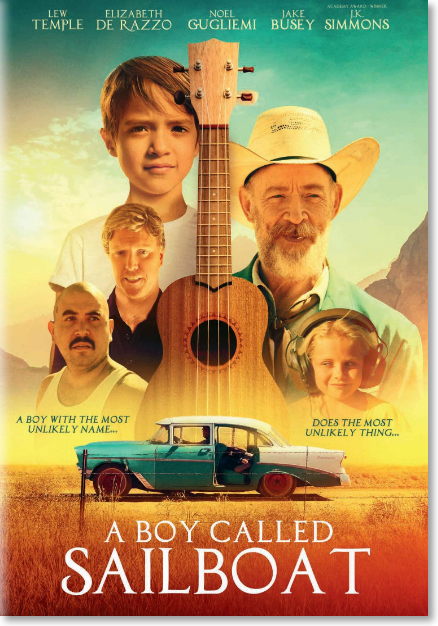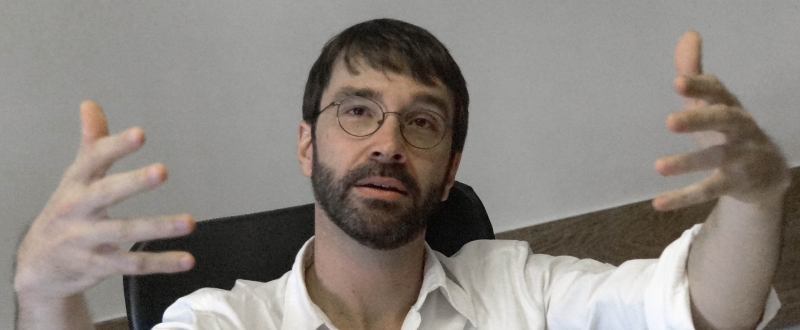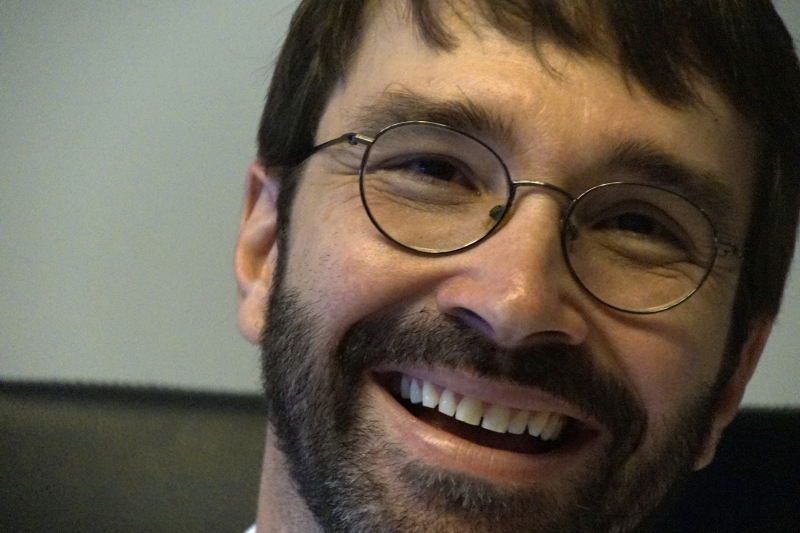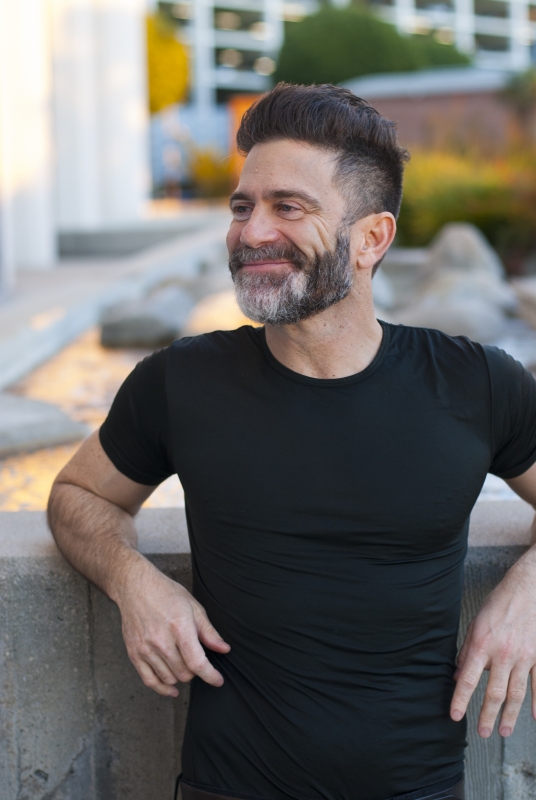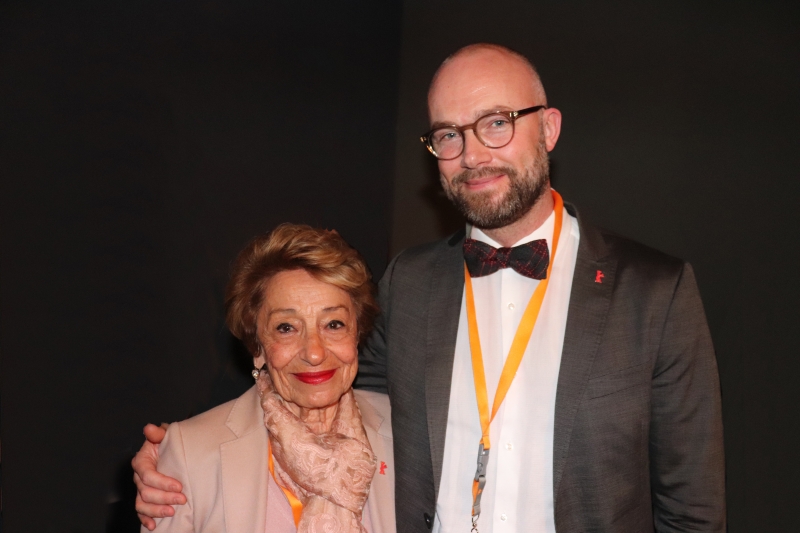|
|
||
|
Pro Tools
FILMFESTIVALS | 24/7 world wide coverageWelcome ! Enjoy the best of both worlds: Film & Festival News, exploring the best of the film festivals community. Launched in 1995, relentlessly connecting films to festivals, documenting and promoting festivals worldwide. Working on an upgrade soon. For collaboration, editorial contributions, or publicity, please send us an email here. User login |
Extended Interview : Georgis Grigorakis & Argyris Pandazaras discuss Digger
"I saw a poster in the train station here (Berlin) about the environmental crisis being the next Berlin Wall. And I think that this is what the film is about." ~ Georgis Grigorakis The Greek film Digger from director Georgis Grigorakis won the Art Cinema Award on Saturday, the 29th of February, which was awarded by the International Confederation of Arthouse Cinemas (CICAE) jury. Digger was the winner from the Panorama section while Ping Jing (The Calming) by Song Fang was the winner from the Forum section. The CICAE Prize is awarded at various prominent international film festivals around the world, and the award promotes and supports those independent films whose artistry, creativity and overall principles seek to make an international impact on world cinema. Grigorakis and his Digger team deservedly won the Art Cinema Award.
Digger, whose story was co-written by Maria Votti and Vangelis Mourikis, uses the all-too-familiar child-parent conflict to set a foundation for some bigger themes.This particular son-father struggle focuses on mulish Nikitas (Vangelis Mourikis) and his reunion with his headstrong son Johnny (Argyris Pandazaras) after a twenty year absence. After the death of Johnny's mother, it appears that both Johnny and Nikitas inherited the land that Nikitas calls home. Johnny seeks out Nikitas, who's been living in isolation just with his animals to keep him company in the forests of Northern Greece; it's a far cry from a warm homecoming. The welcoming, if one can call it that, is a bit cold and removed. The parallels of Nikitas and Johnny's struggle to come to terms with one another is reflected in the overarching theme of the film, the nature vs man problem. The Monster, the mining company that has moved into the area, is gobbling up land and resources while also providing many locals with a steady income. The locals who are in the same position as Nikitas, who are fighting to protect their land and animals, face an upward battle. Filmfestivals.com had the chance to sit down with director Georgis Grigorakis and acclaimed stage director and actor Argyris Pandazaras to discuss their film, which premiered right in the heart of the 70th anniversary of the Berlinale on February 24, 2020 at CinemaxX Berlin Potsdamer Platz.
Lindsay R. Bellinger: Your film Digger is running in the Panorama section at Berlinale this year. It portrays an interesting picture of Greek society that maybe many people are not familiar with. How did you come up with this story, setting it in the rural forest, and how long have you been thinking about this project?
Georgis Grigorakis: Well, I think that it's been developing for the last five years now, the script. I think for me, it's a Greek film but it reflects more universally than Greek society. I think this division within society is a universal thing that is happening. You know that one day I saw a poster in the train station here about the environmental crisis being the next Berlin Wall. And I think that this is what the film is about. I think it's about people divided into those who like "the Digger" in the film kind of devouring, kind of eating up everything. They wanna continue, let's say, in a system that goes for profit and wants to eat up everything. And wants to continue in a system that we know is gonna end. Our natural resources, the way we are consuming are gonna end in the next fifty years max. And some other people, on the other hand, who say, "No more, it's enough. We want to have our lifestyle a different way, a different balance in the way we live." And I think that's a global division. That this is already happening and it's gonna being happening more and more in the future, inevitably. It's about a system who wants some cost effective solutions and a system that avoids relationships at the same time because relationships have a cost, you know. You cannot avoid the cost if you want to make the effort to make a relationship. This is why in the end it's a film about the father-son relationship, which both make a big effort digging, to create the foundation.
LB: This father-son relationship, the father Nikitas played by the well-known Greek film actor Vangelis Mourikis and Johnny played by Argyris Pandazaras, was very powerful. Perhaps some viewers will be able to relate to this type of broken parental relationship. I really enjoyed how you portrayed their reunion, and I believe some of the press material referred to them as enemies. How did you guide your two actors to build this relationship?
GG: Well...first of all, the script, the narrative itself somehow guided them. And I think each one did their own personal journey in order to dig inside themselves personally. You know, I think from the point of view of the son, I think he (Pandazaras) can talk to you about how his process. And I think that in the point of view of the father, what it means to be the father, what it means to be the son. So I directed them inwards, to dig into themselves...and I was just there to direct them, as you said, but they did the job, they did the job digging. I didn't dig for them so he can talk about it.
Argyris Pandazaras: I think that it's not, uh, how to be a good actor but how to be a better human, human being. And that's why I believe from the personal journey we have to do until the shot, until the shooting, I think is to listen, accept and forgive. So that was our homework, the real work, the real life work and that's why I believe that this movie is not a statement, it's a warning. It's a warning and to stop the journey, our journey from the ending. You know, when the film ends, we start to dig.
LB: I like how you stated that. Georgis, I noticed how Vangelis Mourikis and Maria Votti are credited as co-writers. How was that collaboration for you, writing with the both of them?
GG: Well, with Maria we started here under the Nipkow Fellowship, here in Berlin five years ago, so this way it's really nice to have this circle, this journey after five years. We started writing the film here, and now we're here at the Panorama presenting the film. So, yeah, in the beginning somehow in a way it was divided by the first half I was working with Maria and the second half with Vangelis as collaborators. Because Maria was involved with other projects and then stayed here. I went back to Athens as I was working with Vangelis, we've collaborated since almost fifteen years. With him working the script it's like also working the direction of the character in the film so you know it was like .... So once the casting was done I went with Vangelis, yeah.
LB: It seems like some of your cast members have a good deal of theater background. Do you also come from theater and did you draw from that?
GG: Only in terms of inheritance, in my ancestors.
LB: Of course, Greek theater.
GG: But no, no I don't have much knowledge of the theater to be honest. I'm into cinema. I came to cinema through photography basically, through visual narrative. I didn't come through dramaturgy in theater. Not all actors, Vangelis is a very pure cinematic actor. He has never done theater in his life.
LB: Yeah, I didn't see that in his bio but the other two actors. (Argyris Pandazaras, Sofia Kokkali)
GG: Yeah, he's a pure. He (Vangelis) just does independent cinema in Greece and very selective, all independent cinema not mainstream. Other actors are both. We have some like Theo Alexander, he was in LA just doing cinema. We have others who have experiences in everything and Argyris has a pure theatrical background. He is one of the most talented theater actors and directors as well, so he has a big career in theater.
LB: So it's his first major film role?
GG: Yeah, his first major film role.
LB: Argyris, how did you, as an actor, approach Digger differently than theater or did it come naturally?
AP: This is why, because our education in Greece is more theatrical, from ancient theater, you know. And so we have...these are our roots. Cinema is a different world, and it's a different sport. That doesn't mean that you can jump into cinema. So I think that we did a lot of work to restart, to start from the beginning, to start from nothing. You know it's with Georgis, we tried to find how to forget how to become an actor and you know in theater we are the creators of the scene, the ensemble owns the scene. In cinema, the creators is the space, the forest, is the machines, everyone so we are just a part of the space. I like it; it's a different sport. It's very, very difficult.
LB: This shoot in particular I'm sure. I can't imagine how the actual shooting was, dealing with the nature, on location in the huge forest, the mud, the animals.
GG: It was very difficult, especially you know for the budget that we had, very limited for the budget that we could raise in an industry that is very...let's say underdeveloped, unfortunately in Greece. But fortunately, we had some really brave producers, like Haos Film, ... a leading figure in contemporary Greek cinema. Faliro House ... is like another chapter in the Greek cinema. We had Blonde Productions, people who really trusted and supported us. A very difficult endeavor with a very small crew, you know like a guerrilla crew, very very small.
LB: That's the best.
GG: Well, the best...yeah, in a way because it was like a family up there but it was a family that made a lot of sacrifices, in terms of the effort and the amount of energy that people came to. So, I mean, super difficult but we made it happen with the support of this big support.
LB: Yeah, it's great that so many different people were able to come together and these production companies coming together to get behind your vision.
GG: We also had friends who were producing who came along, we had Match Factory, Michael Weber executive producing the film. Nikos Katsaounis, people who were basically, because the thing was delayed, you know because of financing it didn't come together. And then, like some angels, they saved us at the last moment.
LB: Oh, wow.
GG: Yeah, really important.
LB: Can you talk a little bit about construction company that invaded this quiet rural community. It's only referred to as "The Monster" on several occasions.
GG: The Monster, yeah.
LB: I feel like "The Monster" is the only real bad guy in Digger because the villagers on both sides, those working for the company and those like Nikitas fighting back against selling, are just trying to survive as best they can.
GG: Yes, I like the way you read it. In a way, yeah I wanted to give rights to everybody because from their point of view they are right. But there is a system that is not right, you know that in this abstraction of "The Monster" of this (mining) industry is a system who is eating up everything and doesn't let us to...yeah, in a way put us into a civil war. It's a system that inevitably doesn't have balance. It's created exactly in the principal of imbalance. You know, so inevitably it creates this kind of tensions and conflicts. So this is what "The Monster" represents, in a way. In this industry there is an interesting metaphor of mining because mining is, in Greek the word mining is...in general the word exploitation, basically, when it first came it didn't have a negative connotation.
LB: Okay.
GG: Because, I don't know if it's the same. I think that it's the same, it's a Latin based exploitation. Exploitation, in Ancient Greek, a similar word means "research to find something to make good use of it" but then with what happened in The Americas, with the first...how do you call it in English, the conquistadores, let's say. They went and find the mining business there and this is where capitalism starts, mining, and then the slaves were working there and this way this word (exploitation) had this negative connotation, you know. So initially, in the past we have been mining for thousands of years. In Ancient Greek it was mining everywhere you know, but in balance with nature, not in the way it was disrupting.
LB: If there is one thing that you would want audiences to take away from watching Digger, what would that be?
GG: I don't have any particular expectation, other than connect somehow. I believe that there are different layers that someone can connect, either the relationship, or characters, or the atmosphere, the location in the forest and everyone can take what they want, as long as you know it's somehow connecting with the audience. And connecting not intellectually so much, also intellectually, but also in a more visceral sense. I would like the audience to have an experience, you know that kind of goes to other parts of the body as well, the heart especially.
LB: The last shot of the film, that's how my friend and I felt as we were staring up. Thanks for sitting down with Filmfestivals.com.
Georgis Grigorakis:
Crew
Written and directed by: Georgis Grigorakis Story: Georgis Grigorakis, Maria Votti, Vangelis Mourikis Cinematography: Giorgos Karvelas Editing: Thodoris Armaos Music: Michalis Moschoutis Sound Design: Leandros Ntounis Sound Mixing: Simon Apostolou Sound: François Abdelnour Production Design: Dafni Kalogianni Costumes: Vassilia Rozana Make-up: Ioanna Lygizou Assistant Director: Arsenis Polymenopoulos Casting: Anna Nikolaou Line Producer: Fenia Cossovitsa Production Manager: Matthaios Voulgaris Producers: Athina Rachel Tsangari, Maria Hatzakou, Chrysanthi Karfi Koi Executive Producers: Christos V. Konstantakopoulos, Michael Weber Co-producers: Gabrielle Dumon, Nikos Katsaounis, Ernst Fassbender, Fenia Cossovitsa, Anna Nikolaou Co-production:
Le Bureau, Paris
Faliro House, Athen N-Coded Pictures, New York FassB Filmproduktion, Frankfurt am Main Blonde, Athen Cast: Vangelis Mourikis (Nikitas) Argyris Pandazaras (Johnny) Sofia Kokkali (Mary) Theo Alexander (Petros) Michalis Iatropoulos (Bob) Vasilis Bisbikis (Kostas) Pavlos Iordanopoulos (Billy) Thitis (Haris) Antonis Tsiotsiopoulos (Themakos) Marianthi Pantelopoulou (Thodora)
04.03.2020 | Berlin's blog Cat. : berlinale Digger Georgis Grigorakis Greek cinema Vangelis Mourikis Interviews PEOPLE
|
LinksThe Bulletin Board > The Bulletin Board Blog Following News Interview with EFM (Berlin) Director
Interview with IFTA Chairman (AFM)
Interview with Cannes Marche du Film Director
Filmfestivals.com dailies live coverage from > Live from India
Useful links for the indies: > Big files transfer
+ SUBSCRIBE to the weekly Newsletter Deals+ Special offers and discounts from filmfestivals.com Selected fun offers
> Bonus Casino
User imagesAbout Berlin Chatelin Bruno Chatelin Bruno |

















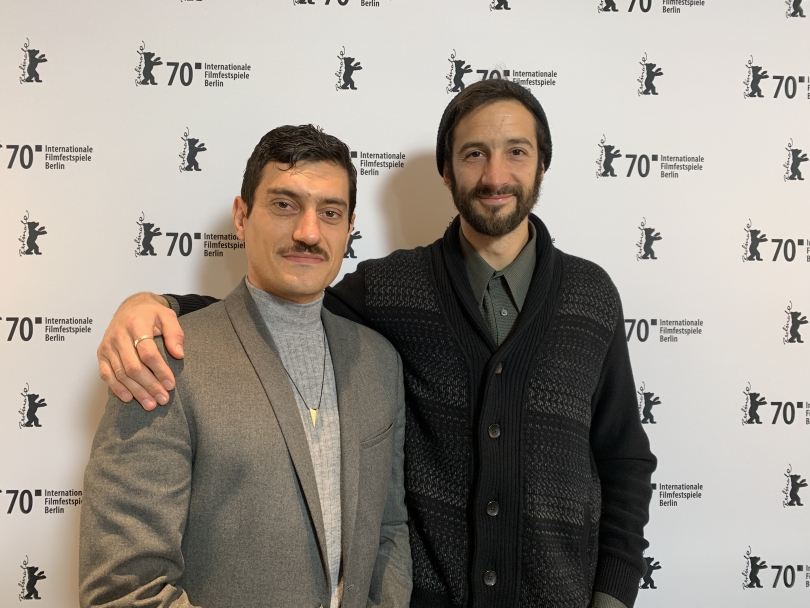 (Argyris Pandazaras, Georgis Grigorakis © Lindsay R. Bellinger)
(Argyris Pandazaras, Georgis Grigorakis © Lindsay R. Bellinger) (Vangelis Mourikis, Argyris Pandazaras © Haos Film, Le Bureau)
(Vangelis Mourikis, Argyris Pandazaras © Haos Film, Le Bureau) (Vangelis Mourikis © Haos Film, Le Bureau)
(Vangelis Mourikis © Haos Film, Le Bureau)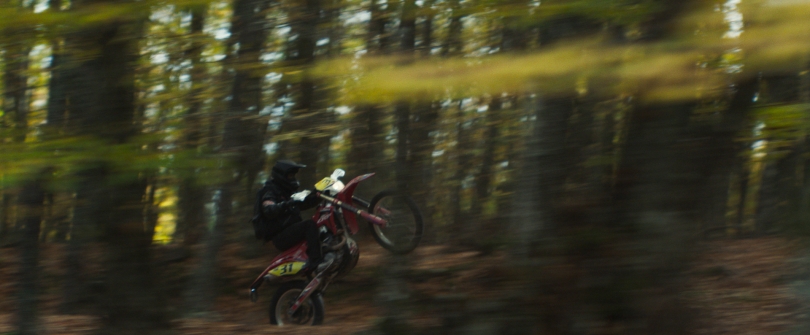 (Argyris Pandazaras © Haos Film, Le Bureau)
(Argyris Pandazaras © Haos Film, Le Bureau) (Georgis Grigorakis, Athina Rachel Tsangari, Vangelis Mourikis, Argyris Pandazaras © Berlinale 2020)
(Georgis Grigorakis, Athina Rachel Tsangari, Vangelis Mourikis, Argyris Pandazaras © Berlinale 2020)
